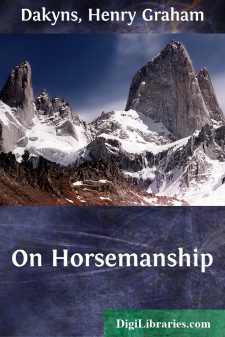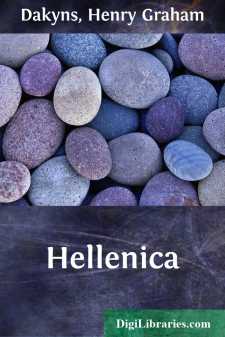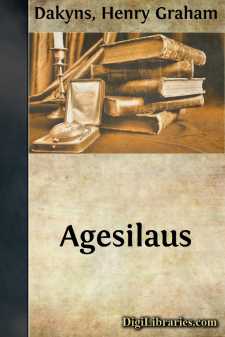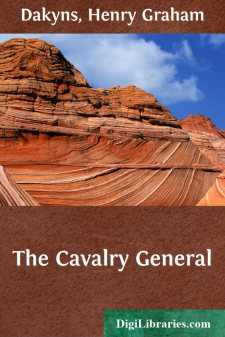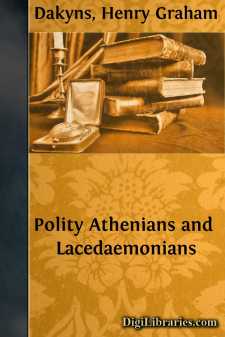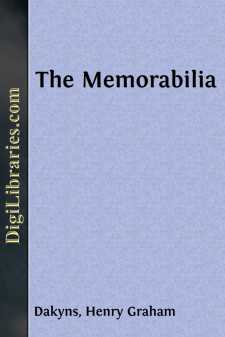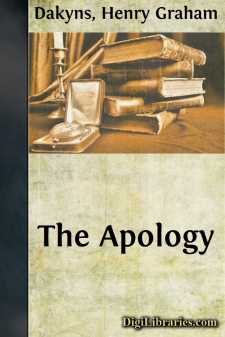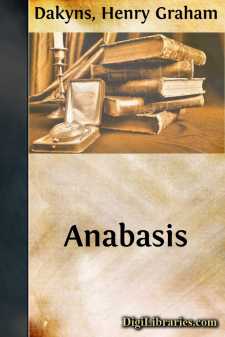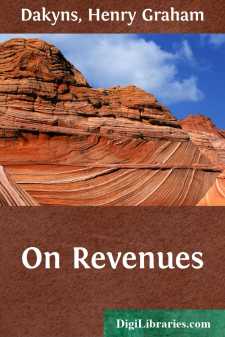Categories
- Antiques & Collectibles 13
- Architecture 36
- Art 48
- Bibles 22
- Biography & Autobiography 813
- Body, Mind & Spirit 142
- Business & Economics 28
- Children's Books 15
- Children's Fiction 12
- Computers 4
- Cooking 94
- Crafts & Hobbies 4
- Drama 346
- Education 46
- Family & Relationships 57
- Fiction 11828
- Games 19
- Gardening 17
- Health & Fitness 34
- History 1377
- House & Home 1
- Humor 147
- Juvenile Fiction 1873
- Juvenile Nonfiction 202
- Language Arts & Disciplines 88
- Law 16
- Literary Collections 686
- Literary Criticism 179
- Mathematics 13
- Medical 41
- Music 40
- Nature 179
- Non-Classifiable 1768
- Performing Arts 7
- Periodicals 1453
- Philosophy 64
- Photography 2
- Poetry 896
- Political Science 203
- Psychology 42
- Reference 154
- Religion 513
- Science 126
- Self-Help 84
- Social Science 81
- Sports & Recreation 34
- Study Aids 3
- Technology & Engineering 59
- Transportation 23
- Travel 463
- True Crime 29
On Horsemanship
Description:
Excerpt
ON HORSEMANSHIP
IClaiming to have attained some proficiency in horsemanship (1) ourselves, as the result of long experience in the field, our wish is to explain, for the benefit of our younger friends, what we conceive to be the most correct method of dealing with horses.
(1) Lit. "Since, through the accident of having for a long time
'ridden' ourselves, we believe we have become proficients in
horsemanship, we wish to show to our younger friends how, as we
conceive the matter, they will proceed most correctly in dealing
with horses." {ippeuein} in the case of Xenophon = serve as a
{ippeus}, whether technically as an Athenian "knight" or more
particularly in reference to his organisation of a troop of
cavalry during "the retreat" ("Anab." III. iii. 8-20), and, as is
commonly believed, while serving under Agesilaus ("Hell." III. iv.
14) in Asia, 396, 395 B.C.
There is, it is true, a treatise on horsemanship written by Simon, the same who dedicated the bronze horse near the Eleusinion in Athens (2) with a representation of his exploits engraved in relief on the pedestal. (3) But we shall not on that account expunge from our treatise any conclusions in which we happen to agree with that author; on the contrary we shall hand them on with still greater pleasure to our friends, in the belief that we shall only gain in authority from the fact that so great an expert in horsemanship held similar views to our own; whilst with regard to matters omitted in his treatise, we shall endeavour to supply them.
(2) L. Dind. (in Athens). The Eleusinion. For the position of this
sanctuary of Demeter and Kore see Leake, "Top. of Athens," i. p.
296 foll. For Simon see Sauppe, vol. v. Praef. to "de R. E." p.
230; L. Dind. Praef. "Xen. Opusc." p. xx.; Dr. Morris H. Morgan,
"The Art of Horsemanship by Xenophon," p. 119 foll. A fragment of
the work referred to, {peri eidous kai ekloges ippon}, exists. The
MS. is in the library of Emmanual Coll. Cant. It so happens that
one of the hipparchs (?) appealed to by Demosthenes in Arist.
"Knights," 242.
{andres ippes, paragenesthe nun o kairos, o Simon, o Panaiti, ouk elate pros to dexion keras};
bears the name.
(3) Lit. "and carved on the pedestal a representation of his own
performances."
As our first topic we shall deal with the question, how a man may best avoid being cheated in the purchase of a horse.
Take the case of a foal as yet unbroken: it is plain that our scrutiny must begin with the body; an animal that has never yet been mounted can but present the vaguest indications of spirit. Confining ourselves therefore to the body, the first point to examine, we maintain, will be the feet. Just as a house would be of little use, however beautiful its upper stories, if the underlying foundations were not what they ought to be, so there is little use to be extracted from a horse, and in particular a war-horse, (4) if unsound in his feet, however excellent his other points; since he could not turn a single one of them to good account. (5)
(4) Or, "and that a charger, we will suppose." For the simile see
"Mem." III....


